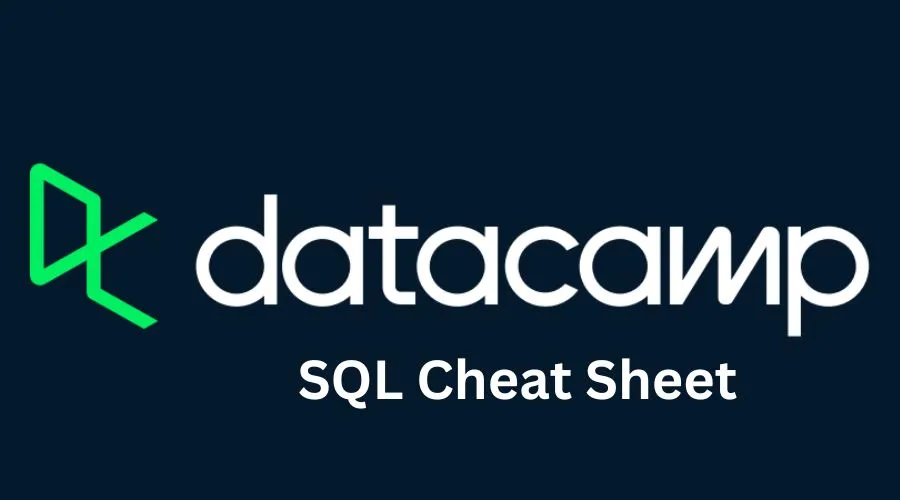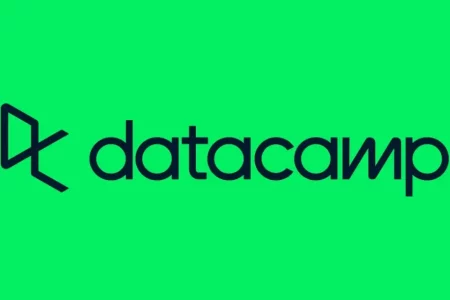SQL (Structured Query Language) is a programming language that is widely used for managing and manipulating data in relational database management systems (RDBMS). It is an essential tool for anyone working with data, especially those who work with large data sets. However, the syntax of SQL can be complex and confusing for beginners. That’s why SQL cheat sheet books are helpful.
Importance of SQL Cheat Sheet Books
SQL (Structured Query Language) is a powerful tool that enables users to retrieve, store, and update data efficiently. However, sql syntax cheat sheet can be a daunting task for beginners, as it involves learning a wide range of commands and syntax. That’s where SQL Cheat sheet books come in handy.
My SQL cheat sheet sheet books are reference guides that provide a quick and easy way to access SQL commands, syntax, and other relevant information. They are an essential tool for anyone who works with SQL, from beginners to experienced professionals.
1. Easy Reference Guide
One of the primary benefits of using SQL Cheat sheet books is that they provide an easy reference guide for SQL commands and syntax. Whether you’re a beginner or an experienced SQL user, it’s easy to forget specific commands or syntax from time to time. Having a reference guide on hand can help you quickly find the information you need, saving you time and reducing the risk of errors.
2. Improves Productivity
SQL Cheat sheet books can help improve your productivity by reducing the time it takes to write SQL queries. Rather than spending time looking up commands or syntax, you can quickly find the information you need in your Cheat Sheet Book. This allows you to write queries more efficiently and effectively, improving your productivity and overall efficiency.
3. Helps in Debugging
Debugging is an essential part of writing SQL queries. When an error occurs, it can be challenging to identify the source of the problem, especially for beginners. SQL Cheat sheet books can help in debugging by providing tips and examples of common errors and how to fix them. This can help you identify and solve problems quickly, reducing the time it takes to complete a task.
4. Aids in Learning
For beginners, SQL Cheat sheet books can be an invaluable tool in learning SQL. They provide a concise summary of the essential SQL commands and syntax, making it easier to understand and remember. By using a Cheat Sheet Book, beginners can quickly build a foundation of knowledge and gradually become more proficient in SQL.
5. Saves Time
Time is a valuable resource in any industry, and SQL Cheat sheet books can help save time by providing a quick reference guide to SQL commands and syntax. Rather than spending time searching for information online or in textbooks, you can quickly find the information you need in your Cheat Shee Book. This allows you to complete tasks more efficiently and effectively, saving you time and increasing your productivity.
Types of SQL Cheat Sheet Books
1. SQL Cheat sheet books for Beginners
For beginners, SQL cheat sheet books provide an excellent starting point to learn the language. They include basic commands such as SELECT, FROM, WHERE, and ORDER BY, along with explanations and examples. These cheat sheet books also cover SQL functions, such as COUNT, AVG, and MAX, which are essential for working with data.
2. SQL Cheat Sheet Books for Advanced Users
For advanced users, SQL cheat sheet books provide a quick reference for more complex commands and functions. These cheat sheet books cover more advanced topics such as subqueries, joins, and indexes. They also provide examples of best practices for optimizing SQL queries for performance.
How to use SQL Cheat Sheet Books effectively?
1. Easy to Use:
Power BI dashboards available on DataCamp are easy to use. Users can create interactive dashboards using drag-and-drop interfaces, without the need for coding. This makes it easy for users with little or no programming experience to create professional-looking dashboards quickly. DataCamp provides a variety of tutorials and courses that help users to master Power BI dashboard creation.
2. Real-Time Monitoring:
Power BI dashboards available on DataCamp allow users to monitor data in real-time. This means that users can make informed decisions based on up-to-date information. Real-time monitoring also allows users to identify potential issues quickly, such as a drop in website traffic or a decline in sales. By identifying issues early, users can take corrective action before they become bigger problems.
3. Customizable:
Power BI dashboards available on DataCamp are highly customizable. Users can choose from a variety of visualizations, such as charts, graphs, and maps, to display their data. They can also customize the colors, fonts, and labels used in their dashboards. Customization allows users to create dashboards that are tailored to their specific needs and preferences.
4. Collaboration:
Power BI dashboards available on DataCamp allow for collaboration. Users can share their dashboards with other team members or stakeholders. This allows everyone to have access to the same information, reducing the chances of miscommunication or misunderstandings. Collaborating on dashboards also encourages teamwork and fosters a sense of ownership among team members.
5. Mobile Access:
Power BI dashboards available on DataCamp are accessible on mobile devices. This means that users can monitor their data on the go, without being tied to a desktop computer. Mobile access also allows users to share their dashboards with stakeholders who may not be in the same location.
Conclusion
In conclusion, SQL cheat sheet books are a valuable tool for anyone learning or working with SQL. They provide a quick reference guide for SQL commands, syntax, and functions. SQL cheat sheet books are helpful for beginners as well as experienced users who may forget specific commands or functions. To use SQL cheat sheet books effectively, it’s essential to start with the basics and work your way up to more advanced topics. Additionally, it’s important to keep your cheat sheet Book up to date to ensure that you’re using the most recent version. For more information, visit Datacamp and Findwyse.















